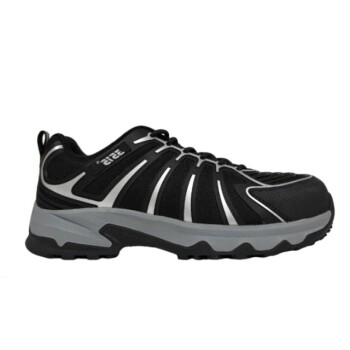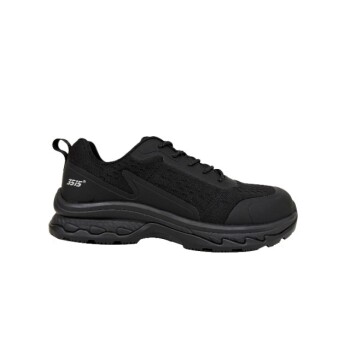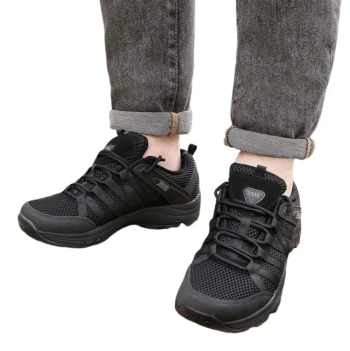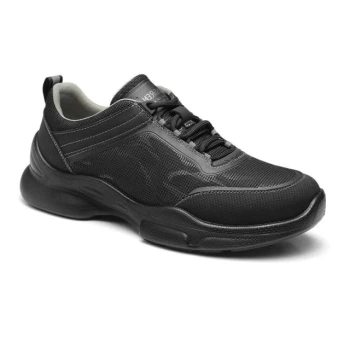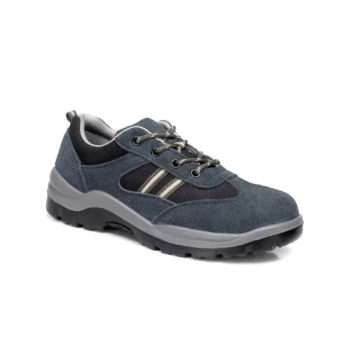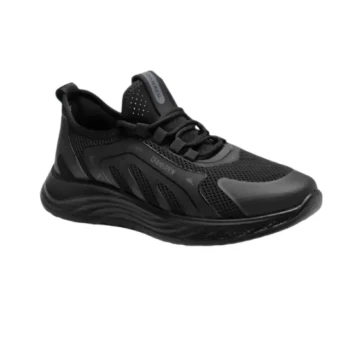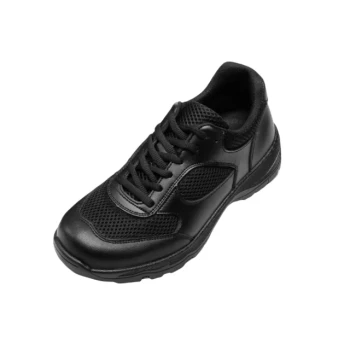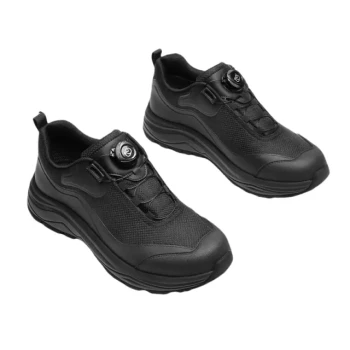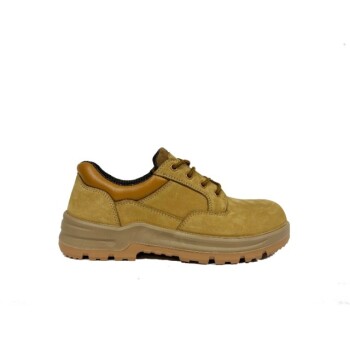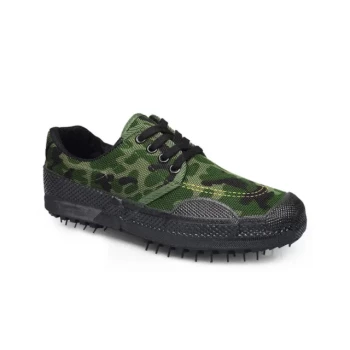In short, nylon is an exceptional upper material for labor protection shoes when the priorities are durability, lightweight comfort, and breathability. Its primary properties include high abrasion resistance, significant tensile strength, and good heat resistance, making it a modern alternative to traditional materials for many work environments.
The core decision to choose nylon for safety footwear is a trade-off. You gain modern advantages in weight, flexibility, and breathability at the cost of the structural rigidity and water resistance typically found in traditional leather boots.
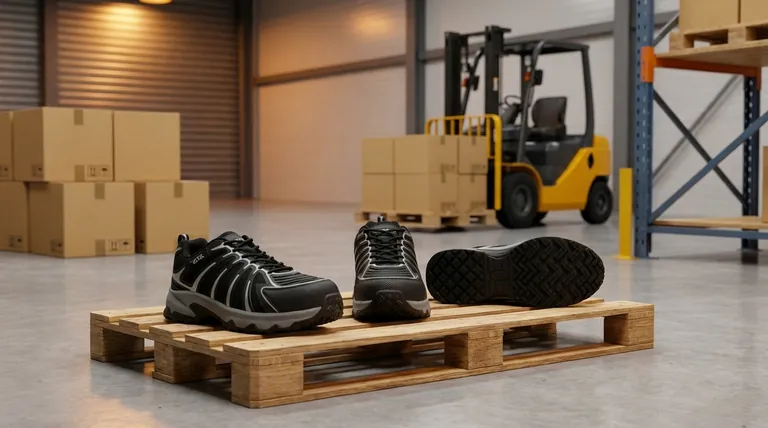
The Performance Profile of Nylon
Nylon, a type of polyamide fiber, brings a unique combination of synthetic performance characteristics to safety footwear. Understanding these properties is key to determining if it's the right choice for your needs.
### Unmatched Durability and Strength
Nylon exhibits extremely high abrasion resistance, meaning it holds up well against scuffs, scrapes, and general surface wear.
It also possesses high tensile and compressive strength for a fabric. This ensures the material resists tearing and breaking under the stresses of a demanding workday.
Finally, its good toughness allows it to withstand impacts without fracturing, contributing to the overall longevity of the shoe's upper.
### Superior Comfort and Wearability
One of nylon's most significant advantages is its light weight. This directly reduces fatigue for professionals who are on their feet all day.
The material is inherently soft and flexible, which shortens the break-in period and enhances overall comfort compared to more rigid materials.
Many nylon boots incorporate mesh panels, which dramatically improves breathability. This airflow helps manage moisture and keeps feet drier and more comfortable in warm conditions.
### Resistance to Workplace Hazards
Nylon is heat-resistant up to 150°C, making it a viable option for footwear used in high-temperature work environments.
It also demonstrates good corrosion resistance, holding up against various chemicals and substances one might encounter in an industrial setting.
Being non-toxic and non-hazardous, it is a safe material to have in prolonged contact with the skin.
Understanding the Trade-offs
No material is perfect for every application. Nylon's strengths are balanced by specific limitations that are critical to consider.
### Water and Moisture Management
Nylon has poor water absorption when it comes to external sources like rain or puddles. Unlike treated leather, it is not inherently water-resistant and can become saturated.
While it can absorb some moisture (sweat) from inside the shoe, it is not a waterproof solution for wet working conditions without a dedicated waterproof membrane.
### Structural Rigidity vs. Flexibility
The same flexibility that makes nylon comfortable means it lacks the inherent rigidity of thick leather.
This can translate to less ankle support in rugged terrain or on uneven surfaces, which may be a critical factor for construction or linesman work.
### Durability: A Closer Look
While highly resistant to abrasion, nylon can be considered less durable than heavy-duty leather in terms of puncture and cut resistance.
The overall lifespan of a nylon boot, especially under heavy mechanical stress, may be shorter than that of a well-maintained, high-quality leather boot.
Making the Right Choice for Your Environment
Your specific work environment and daily tasks should dictate your material choice.
- If your primary focus is comfort and mobility in dry, indoor environments: Nylon is an excellent choice for warehouse work, logistics, or light manufacturing.
- If your primary focus is maximum protection in rugged, wet, or unpredictable outdoor conditions: A traditional leather boot may offer superior support and weather resistance.
- If your primary focus is working in high-heat conditions: Nylon's thermal resistance makes it a strong and lightweight contender.
Ultimately, choosing the right material is about matching its specific performance profile to the demands of your job.
Summary Table:
| Key Property | Benefit for Safety Shoes |
|---|---|
| High Abrasion Resistance | Withstands scuffs and scrapes for long-lasting wear. |
| Lightweight & Flexible | Reduces fatigue and shortens the break-in period. |
| Good Breathability | Manages moisture to keep feet comfortable. |
| Heat Resistance (up to 150°C) | Suitable for high-temperature work environments. |
| Chemical Resistance | Holds up against various industrial substances. |
Need the perfect safety footwear for your team?
As a large-scale manufacturer, 3515 produces a comprehensive range of high-performance labour protection shoes for distributors, brand owners, and bulk clients. Whether you need the lightweight comfort of nylon or the rugged durability of leather, our production capabilities cover all types of safety shoes and boots to meet your specific demands.
Contact our experts today to discuss your requirements and discover how we can provide reliable, comfortable, and compliant footwear solutions for your workforce.
Visual Guide
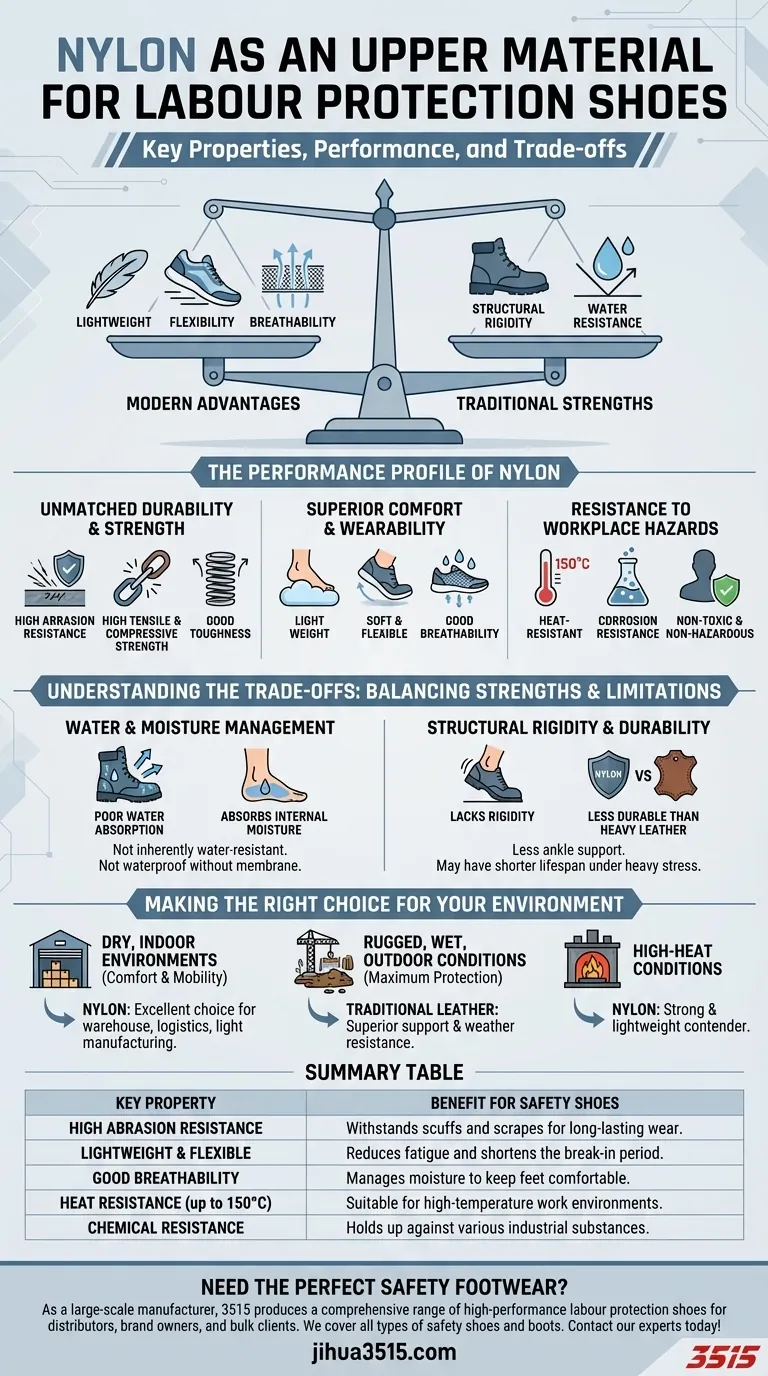
Related Products
- Premium KPU Athletic Safety Shoes for Wholesale
- Durable Rubber-Soled Utility Shoes for Wholesale & Custom Brand Manufacturing
- Wholesale Leather Safety Boots with Customizable Protective Toe
- Premium Lightweight Safety Shoes for Wholesale & Bulk Orders
- Lightweight Breathable Training Shoes for Wholesale & Custom OEM Manufacturing
People Also Ask
- Why are industrial-grade safety shoes mandatory in metallurgical workshops? Essential Protection for Extreme Environments
- Why is compliance with safety standards such as PN EN ISO 20347:2012 critical? Ensure Certified Workplace Protection
- How do industrial safety shoes contribute to safety in sugar production? Ensure High-Altitude Inspection Security
- Why does the material performance of professional slip-resistant shoes offer superior safety? Hardware vs. Behavior
- How do athletic-style safety shoes balance flexibility and safety? Perfect Agility for Active Professionals
